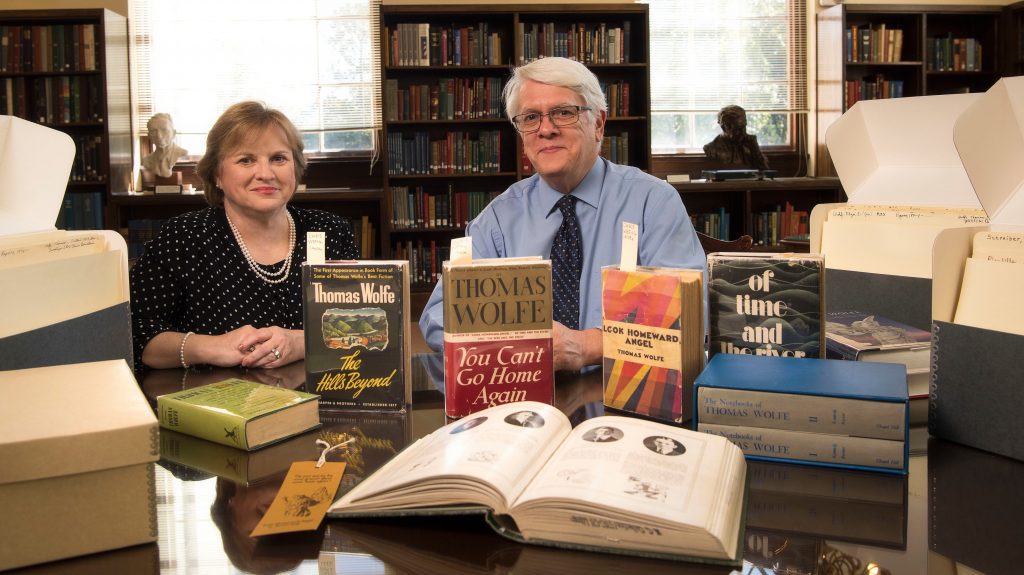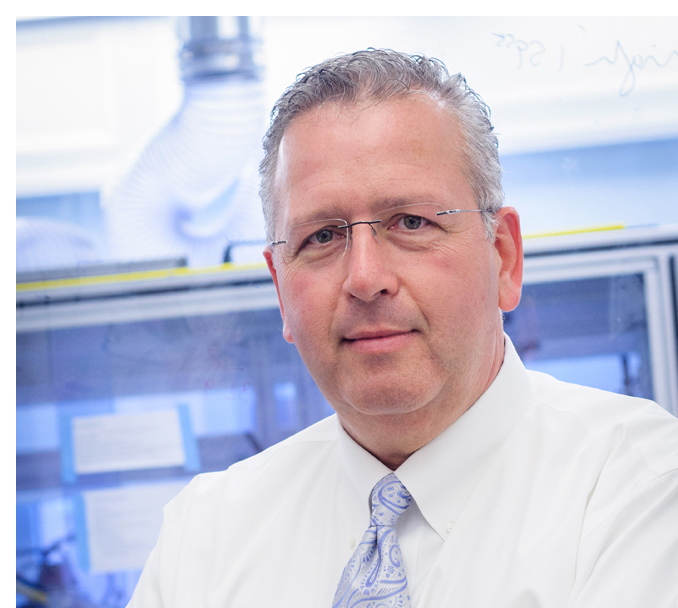 It was the way that tardigrades survive in virtually any environment that first attracted Thomas Boothby to study their proteins.
It was the way that tardigrades survive in virtually any environment that first attracted Thomas Boothby to study their proteins.
The creatures, also known as “water bears,” are about a half-millimeter long and can survive for extended periods in the most extreme hot or cold conditions without food or water for years. Boothby, a post-doctoral student in the College of Arts & Sciences at the University of North Carolina at Chapel Hill, wanted to know if it was possible to apply the tardigrades’ unique nature as a way of preserving other sensitive biological material in a dry state.
“Normally, we have to keep biological material under refrigerated conditions,” said Boothby, who was interviewed for a July National Geographic story about tardigrades’ ability to survive in almost any condition. “But if we mix these materials with the tardigrade proteins, we can dry the mixture and keep it at room temperature, and it preserves the function and structure of the enzymes.”
The process, for which Boothby and his team have a provisional patent, could be extremely important for the preservation of medicines and other biological material, which often must be stored at low temperatures and have a short shelf life, said Gary Pielak, the Kenan Distinguished Professor of Chemistry at UNC-Chapel Hill, who serves as Boothby’s mentor.
“The proteins that Thomas defined looked like they may be broadly applicable to stabilizing other proteins,” said Pielak, who also credited the preservation experiments of UNC-Chapel Hill graduate student Samantha Piszkiewicz that were key to the project. “These proteins might help make the new drugs being developed more stable. It will not only preserve new medicines, but also preserve them without having to keep them cold. A lot of the cost of new, protein-based drugs comes from the fact that you have to keep them cold all the time.”
Boothby added, “One of the issues about protein-based vaccines and pharmaceuticals is that they are really sensitive. They are expensive to make, ship and store, and have a short shelf-life. Using the tardigrade proteins might be a good way to reduce the cost of shipping and storage of pharmaceuticals, but it would also be a logistic and economic boon to remote or developing parts of the world, where access to refrigerators or freezers to maintain pharmaceuticals is hard to come by.”
Boothby first became interested in tardigrades after earning his doctorate at the University of Maryland and was attracted to UNC-Chapel Hill because of the work the biology department had undertaken using the creatures.
“Studying how cells were able to tolerate drying out really interested me,” Boothby said. “Tardigrades are a famous example of an organism that can survive many different types of stress. They can survive being frozen, drying out, going without water; they can survive thousands of times more radiation than we can. People have even sent tardigrades to outer space, and they can survive in that vacuum. That organism seemed like a good one to study.”
Four years ago, Boothby began working with Bob Goldstein, the James Peacock III Distinguished Professor of Cancer Cell Biology at UNC Lineberger Comprehensive Cancer Center.
“They’re doing a lot of molecular and cell biology work with tardigrades,” Boothby said. “They are studying tardigrades from an evolution, development standpoint. That seemed like a good lab to join because they had the animals and knew how to work with the animals. But they weren’t studying the stress processes, so I could develop an independent project going off my own ideas.”
Once he started his work, Boothby realized he needed a mentor to help him understand the chemical processes involved with the proteins, so he sought out Pielak.
“I remember meeting Thomas almost three years ago,” Pielak said. “He walked into my office and said, ‘I need a protein chemist.’ I asked why. He told me the story about his work with tardigrades. I thought that took some guts for a post-doc in a different department to find a protein chemist to recruit. And I was very interested.”
Pielak said Boothby has taken the scientific lead on this project. The team hopes to attract funding to continue their research. Boothby said the process of bonding the new proteins to pharmaceuticals will still need to undergo Food and Drug Administration-approved trials before it hits the market.
Eventually, Boothby’s process could be used to preserve human tissue and organs for transplantation, although that idea is further down the road. Currently, the team is seeking to either license the patent-pending process to a pharmaceutical company for further development, or start its own company through one of UNC-Chapel Hill’s business incubator programs. Boothby eventually hopes to work in academia.
“There’s no doubt Thomas is the most academically gifted post-doc I’ve ever had,” Pielak said. “He thinks hard, he works hard, and he writes well. If all I have to teach him is how to be an academician, my job is easy.”
Written by Phillip Ramati, University of North Carolina system




